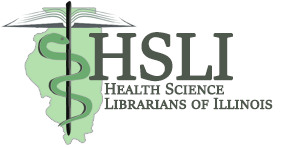In June, the ALA’s Reference and User Services Association officially updated its guidelines for health and medical reference. The new guidelines stem from a significant revision of the “Guidelines for Medical, Legal, and Business Responses”, which were released in 2001. The revised guidelines are intended for all library staff, not just those working in medical or hospital libraries. They are aimed at both staff members who routinely answer health and medical reference questions, and those who usually don’t but should be prepared, just in case. For the purposes of the guidelines, “health and medical reference” is defined as questions that cover any area of medicine, health, or biomedicine, such as patient health, public health, consumer health, clinical medicine, and biomedical research.
The guidelines cover three main areas: the role of information-services staff, professional behavior during reference transactions, and ethical issues. A summary of the guidelines under each area is below.
Guideline 1: Role of Information-Services Staff
- When answering questions covering medicine or health, library staff should make it clear to the patron that the staff’s role is to locate information necessary for answering the question. Staff should also emphasize that the information they are providing does not count as “professional advice” and that, while the staff work to recommend the best resources available, the library cannot be held accountable for the accuracy of the information in those materials.
- Library staff should be aware of the particular needs of the various user populations, including groups that may face educational or language barriers or that have specific health issues. Staff should ensure that the library’s collection reflects those needs.
Guideline 2: Reference Transaction Professional Behavior
- When conducting the reference interview, library staff should try to maintain a balance, between obtaining enough information to answer the question and respecting the patron’s privacy while making the individual feel comfortable in seeking help. Staff should be especially diligent in ensuring that the medical terminology related to the patron’s question is correct, including the spelling.
- In giving patrons information, staff should make certain that the level of service they are providing, and the materials they recommend, are appropriate for the specific populations being served. These considerations should include the educational attainment and cultural background of patrons.
Guideline 3: Ethics
- Library staff should always maintain the confidentiality of patron inquiries, regardless of the format (in-person, phone, e-mail) in which the reference transaction takes place. They should also respect that users have the right to seek any kind of medical information and should not try to “steer” the patron toward certain sources or health providers.
- As staff cannot give formal medical advice (see Guideline 1), they should be aware of their institution’s guidelines for using particular reference services that cover health and medicine. If answering a question would be inappropriate for the type of service that their library provides, staff should refer the patron to other resources.
The full set of guidelines can be viewed here.
